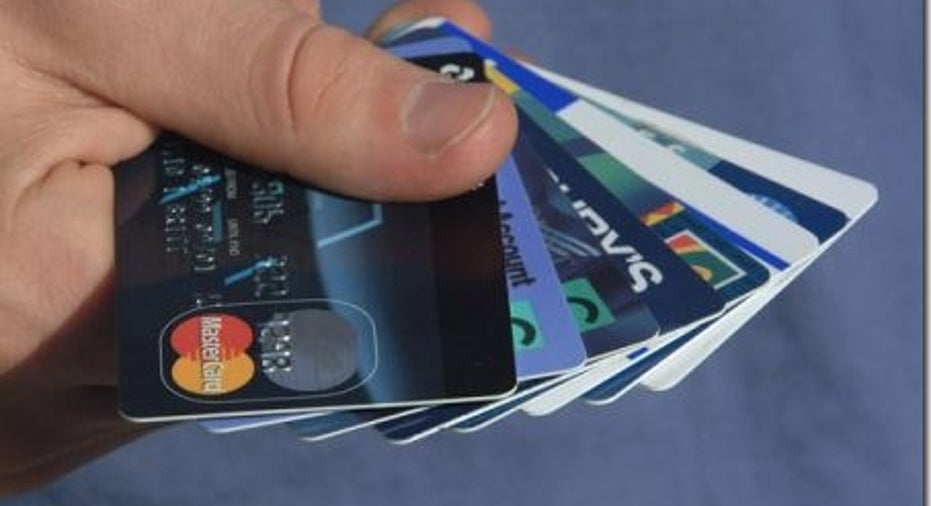Who's to Blame for Credit Card Debt?

"A judge said that all his experience, both as counsel and judge, had been spent sorting out the difficulties of people who, upon the recommendation of people they did not know, signed documents which they did not read, to buy goods they did not need, with money they had not got."
- Gilbert Harding
Wow. Can you think of a quote that better distills the zeitgeist of 21st-century America? Could it have been written at any other time about any other place?
Well, yes, actually. Gilbert Harding was a journalist who died in 1960, and the judge he was quoting was British. We may think of problem debt as a relatively recent social ill, but writers have been warning about its effects since Old Testament times, through Publilius Syrus in the first century BCE and Benjamin Franklin in the 18th century, to what feels like every politician today.
Credit card debt rising again
And, of course, we continue to ignore them all, just as humanity always has. On Jan. 9, the Federal Reserve published its consumer credit data for November 2011. That month, the total amount outstanding rose at an annualized rate of 9.9%, or more than $20 billion. The amount owed on "revolving credit" (which is nearly all credit card debt) jumped an annualized 8.5% to $798.3 billion. It was the first time since the credit crunch that revolving credit had risen over three consecutive months.
At the time of writing, the Fed is yet to publish its December 2011 data, but there's every reason to think that they too will reveal another increase. On Jan. 10, First Data Corp. published its SpendTrend analysis for that month, and it showed that credit card transactions by value were up by 6.8% compared with December 2010. Naturally, many consumers are likely to zero their balances at the first opportunity, but many others probably won't.
Of course, most differentiate between sorts of debt. Few today say that it's immoral or shameful to owe money per se. It's when debt becomes unmanageable that people start pointing fingers of blame.
Who's to blame for credit card debt?
Many of us apportion blame for credit card and other debt according to our political views. At one extreme, liberals often argue that credit card companies should carry the can. At the other, conservatives say it's all down to individual consumers.
Let's start with the latter, because the conservative position is less nuanced -- and thus more powerful as an argument. Essentially it boils down to this (though if you disagree you're welcome to comment below): Free enterprise and rugged individualism require people to take responsibility for their actions. If someone chooses to sign a contract without reading it, and to take on obligations that they can't fulfill, then they must live with the consequences.
Credit card companies shoulder some responsibility?
It would be hard (for this writer, impossible) to pick holes in that argument. A liberal might accept it, but add a couple of points:
- One of the reasons consumers don't read credit card (and other finance) contracts is that they're long and written in a dense legalese that many find impossible to understand.
- Consumers are not experts in financial matters, while credit card companies employ people who are. If a business that has dedicated risk managers and sophisticated credit scoring systems deems a person creditworthy then she might not unreasonably assume that she is.
It's also possible to argue that credit card companies are, to some extent, "asking for it." A recent IndexCreditCards.com article quoted Ezra Becker, the vice president of research and consulting for credit bureau TransUnion, who said in November:
Indeed, one in four of the new credit cards issued in the third quarter went to subprime borrowers, according to TransUnion. Meanwhile, another article on IndexCreditCards.com reported Mintel Compermedia figures that suggested that 1.3 billion credit card offers were mailed to consumers during that same quarter, up 85% over the start of 2010.
So who is at fault?
Does that constitute "asking for it" on the part of card issuers? Probably not, although many would see choosing to lend to people whom you know, by definition, are less than creditworthy as a contributory factor in consequent losses.
Of course, it's rare for a consumer to apply for a credit card knowing that he'll be unable to keep up with payments. And it's even rarer for credit card companies to approve applications from those they know will default. So why does it keep happening?
In her 2009 book "Bright-Sided," Barbara Ehrenreich argued that the sunny optimism that has characterized Americans and served the country so well in the past might come with a cost. She suggests that unrealistic decisions can flow from it, and that those affected are as likely to include top executives (including those in credit card companies) as private citizens.
Perhaps both sides should take a reality pill, and stop blaming each other.
The original article can be found at IndexCreditCards.com:Who's to blame for credit card debt?



















